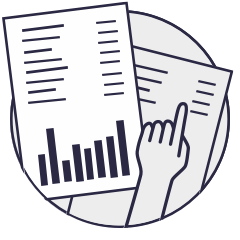Company Pensions
Having a pension is very important for a number of reasons, perhaps no bigger than the financial security and freedom it gives you when you retire. A company pension scheme enables you to use your salary to plan for retirement – as well as helping to improve your tax efficiency.
Because pensions can be rather complicated, you are advised to seek the advice of a financial consultant when you are ready to take out a pension as they will be able to better advise you by taking into account your unique circumstances. To give you a better understanding of what is involved regarding a pension, we have put together the following information:
Relying on the state pension is not enough
It can seem that the state pension is always in the news, and rarely for good reasons. The problems with the state pension are multiple, and therefore an effective solution is slow and difficult. One such problem is that an increasing number of people currently out of work compared to in the past, as such, less money is collected by the Treasury in the form of Income Tax. In addition, the ongoing downturn in business has seen a steady fall in profits for many companies, resulting in a significant drop in money collected from Corporation Tax. Finally, and of course this is a good thing, people are living longer. This may not seem much, but the average life expectancy for people has risen considerably over the past few decades, resulting in pensions being claimed for much longer time periods than was predicted in the past.
All of these factors combined have resulted in the need for people to look at other pension options to work alongside that provided by the State. Keen for people to take this responsibility, the government has introduced legislation making it a legal requirement for companies to provide employees with a company pension. These pensions feature tax incentives for people paying into them to encourage their use even more.
The two types of pension
In general, most pensions fall into one of two categories; that of Final Salary Pensions and Money Purchase Pensions. With each having their own pros and cons depending on your own specific needs, it is important to have an understanding of the two different types so that you can make a more informed decision when it comes to selecting which type is best for you.
Final salary pension
A Final Salary Pension was for a long time the most common type of pension offered by companies – whilst this is not true anymore, they are still seen as the more traditional, and from an employee’s point of view, perhaps the safest. Calculated as a percentage of your salary, this pension is often offered by large companies. However, Final Salary Pensions are becoming less common as they can pose a risk to business who provide high salaries for workers who remain with them for a long time and whose pension payments often rise to meet their increasing salary.
Money purchase pension
Money Purchase Pensions have become the most common type of pension available these days. This pension is more flexible in that the amount you will receive will depend on various factors and the choices you make. Such factors include how much you decide to pay into the pension each month, as well as how the pension itself performs with your money. Whilst such pensions can offer good rewards if successful, there are of course more risks involved and therefore greater uncertainty regarding how much you will actually get when you retire. With both types of pension using your money to invest in other schemes in order to make a profit, it is of course important to learn about where your money will likely be invested as this will help you identify the level of risk involved and contribute to making a safe choice.
Tax relief for pensions
If you are a business owner, the government will add 20% to the pension contributions you make. This is done to basically eliminate the tax you would have been required to pay on that money. Because the government is providing this back to you in the form of a pension top-up, the pension contributions you make will be tax-free.
For business owners, establishing a company pension can have significant tax benefits. Such benefits can be greater than paying yourself dividends because you will not be required to pay tax on your contributions – although of course you will have to wait for the money!
Start paying when you can
It will come as no surprise to learn that the more you pay into a pension, the more you will get from it – therefore, the sooner you can begin paying into a scheme the better. When deciding on your contributions, it is important to calculate what you will be able to afford to pay each month – remember your salary may fluctuate and therefore you should make sure that your payments will not adversely affect your day-to-day living standards. It is easy to forget about your pension contributions, but you are recommended to review your pension’s performance on a regular basis so that you can make any necessary alterations if required.
Get advice
Getting the right pension is a big thing, and you therefore need to ensure you fully understand what you are getting into, this is particularly true for business owners. As with all such things, you are recommended to seek the advice of a professional financial adviser. Whilst the advice you will get will be impartial, you are likely going to have to pay for such a consultation and you should therefore take this into account.





